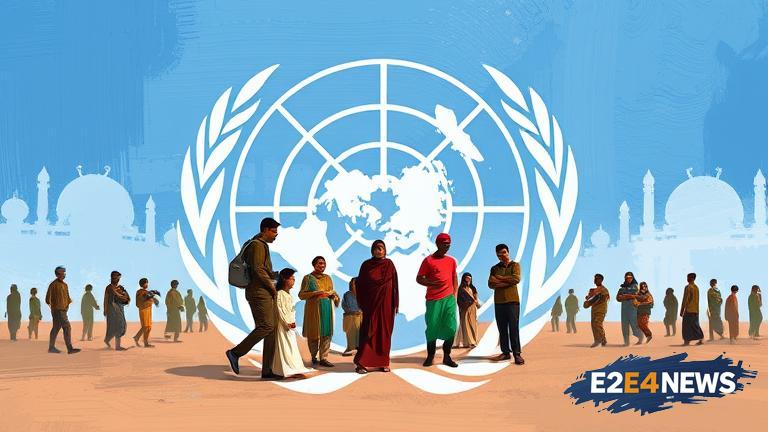The United Nations has marked the eighth anniversary of the forced exodus of Rohingya Muslims from Myanmar, calling for renewed solidarity with the hundreds of thousands of refugees still living in camps in Bangladesh. The crisis began in August 2015, when a military crackdown in Rakhine State led to the displacement of over 700,000 Rohingya, who fled to neighboring Bangladesh in search of safety. The UN has described the situation as a ‘textbook example of ethnic cleansing.’ Despite efforts to repatriate the refugees, many remain in limbo, unable to return to their homes due to ongoing violence and persecution. The UN has urged the international community to continue providing support to the Rohingya, including access to education, healthcare, and livelihood opportunities. The organization has also called for accountability for the human rights abuses committed against the Rohingya, including murder, rape, and arson. The Rohingya have faced decades of discrimination and marginalization in Myanmar, where they are denied citizenship and basic rights. The crisis has had a devastating impact on the region, with many Rohingya women and children forced into slavery, trafficking, and other forms of exploitation. The UN has warned that the situation remains precarious, with many refugees still living in overcrowded and unsanitary conditions. The organization has appealed for increased funding to support the humanitarian response, including the provision of food, shelter, and healthcare. The international community has been criticized for its response to the crisis, with many arguing that more needs to be done to hold Myanmar accountable for its actions. The UN has called for a comprehensive and inclusive solution to the crisis, including the granting of citizenship and basic rights to the Rohingya. The organization has also urged the international community to support the development of a sustainable and durable solution, including the creation of safe and voluntary return conditions. The Rohingya crisis has had significant regional and global implications, with many countries calling for increased action to address the situation. The UN has warned that the crisis has the potential to destabilize the entire region, with many fearing that it could lead to further conflict and violence. The organization has called for a coordinated and collective response to the crisis, including the provision of humanitarian aid and the promotion of accountability and justice. The Rohingya have faced significant challenges in accessing basic services, including healthcare and education, with many forced to rely on informal and unregulated providers. The UN has called for increased support to address these challenges, including the provision of funding and technical assistance. The organization has also urged the international community to support the empowerment of Rohingya women and girls, who have been disproportionately affected by the crisis. The Rohingya crisis has had a significant impact on the environment, with many refugees forced to rely on unsustainable and environmentally damaging practices. The UN has called for increased support to address these challenges, including the provision of funding and technical assistance to support sustainable livelihoods and environmental protection. The organization has also urged the international community to support the development of a comprehensive and inclusive plan to address the crisis, including the promotion of accountability, justice, and human rights. The Rohingya crisis is a complex and multifaceted issue, requiring a comprehensive and coordinated response from the international community. The UN has called for renewed solidarity with the Rohingya, including the provision of humanitarian aid, the promotion of accountability and justice, and the support of sustainable and durable solutions.
